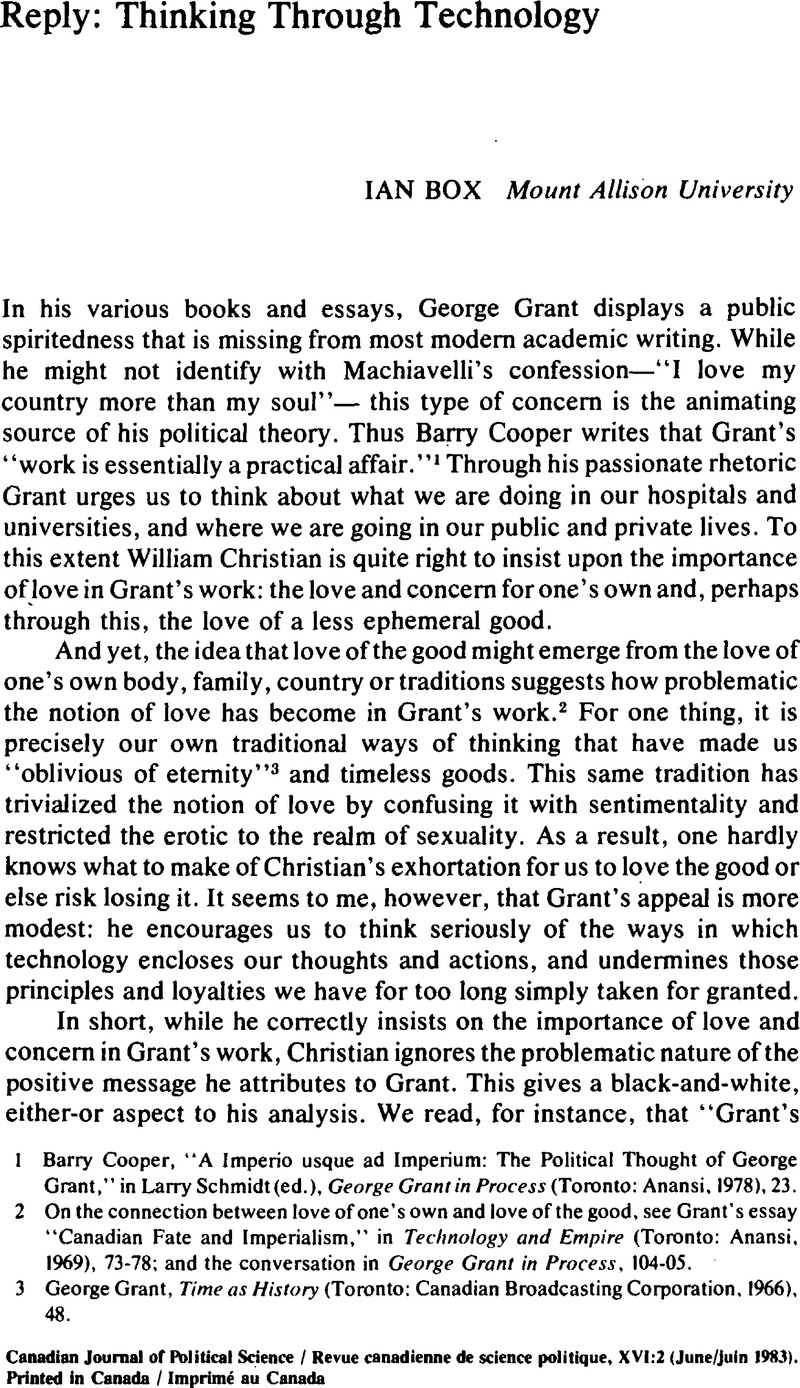No CrossRef data available.
Published online by Cambridge University Press: 10 November 2009

1 Cooper, Barry “A Imperio usque ad Imperium: The Political Thought of George Grant,” in Larry Schmidt(ed.),George Grant in Process (Toronto: Anansi, 1978), 23.Google Scholar
2 On the connection between love of one's own and love of the good, see Grant's, essay “Canadian Fate and Imperialism,” in Technology and Empire (Toronto: Anansi, 1969), 73–78Google Scholar; and the conversation in George Grant in Process, 104-05.
3 Grant, George, Time as History (Toronto: Canadian Broadcasting Corporation, 1966), 48.Google ScholarPubMed
4 For a good discussion of this kind of dogmatic taking of sides, see Part 2 of Nietzsche's Beyond Good and Evil, particularly “aphorisms” 24, 31 and 34.
5 Contrast this decision with Strauss's conscious “retreat from the stage of literary glory” described in Allan Bloom's tribute to him in Political Theory 2 (1974), 387-89.
6 Eli Mandel mentions this problem of the relation of polemic to theory in Grant's work in “Grant, George: Language, Nation, The Silence of God,” Canadian Literature 83 (1979), 164.Google Scholar
7 Grant, George, Lament for a Nation (Toronto: McClelland and Stewart, 1970), x.Google Scholar
8 Grant, George, English-Speaking Justice (Sackville, N. B.: Mount Allison University, 1974), 1.Google Scholar
9 Grant, Technology and Empire, 137.
10 Particularly in the essay “Knowing and Making,” Transactions of the Royal Society of Canada (4th Series) 12 (1974), 59-67.
11 Grant, English-Speaking Justice, 68.
12 Grant, '“The Computer Does Not Impose on Us the Ways It Should be Used. '” in Rotstein, Abraham (ed.). Beyond Industrial Growth (Toronto: University of Toronto Press, 1976), 130.Google Scholar
13 Ibid., 131.
14 See my Grant, “Georgeand the Embrace of Technology,” in this JOURNAL 15 (1982). 515.Google Scholar
15 Grant, English-Speaking Justice, 93.
16 Friedrich Nietzsche, On the Advantage and Disadvantage of History for Life, trans. Peter Preuss (Indianapolis: Hackett, 1980), 53; see also “aphorism” 224 of Beyond Good and Evil.
17 Much has been made of this aspect of Grant's work; see in particular Laurence Lampert, “The Uses of Philosophy in George Grant,” in George Grant in Process, 190-94.